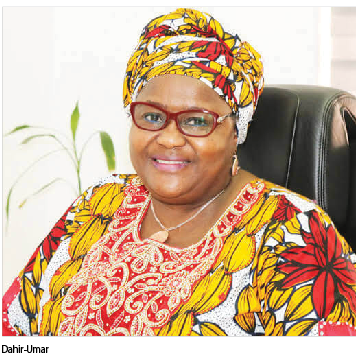When the former President Olusegun Olusegun-led federal government launched the Nigerian Pension Reform Act of 2004, all bets were on a rapid change to a chaotic and dreaded system for the entrenchment of economic rebound. After nearly 19 years of improvement and milestones, the thinking is that a new contractual financial liability is about to be added to the already saturated federal treasury.
In the event, a bill to exempt the Nigeria Police Force (NPF) from the Contributory Pension Scheme (CPS) like their counterparts in the military and the establishment of police pension board was recently passed after much battle between the police officers and the pension regulator, National Pension Commission (PenCom) and of course, pension fund operators. The bill was strongly opposed by PenCom, the pension operators and the Nigeria Labour Congress.
The reason for the agitation and subsequent passing of the bill was due to retired members of the force claiming they are not receiving their full accrued benefits. Most of the retired officers argue to the effect that unlike their military counterparts, each person’s monthly pension is way too little and abysmally poor to feed. Some of them complain of not getting more than N30,000 or ($39.8) as pension.
“Although the Contributory Pension Scheme currently addresses several of the shortcomings of previous Nigerian pension schemes, current PFAs have been unable to fully address the peculiarities of the Police Force,” the police stated while advancing their position. They rightly point to many factors including pending reconciliation of police personnel data which is crucial for obtaining pension contribution from the Central Bank of Nigeria and effective pension administration as one of the reasons they should be left to go.
This is not the first time the police force has made a request to leave the CPS. There have been several attempts. The last time the federal government issued a white paper where the police were strongly advised not to toe this line of action.
If the bill is eventually signed into law, the gains of the pension reform process may be reversed. Under the bill passed by the senate, the federal government will now be fully responsible for police pensions, a situation PenCom and its allies say will cost the federal government trillions of naira over time. Before the 2004 pension reform, such practice led to unfunded pensions and piled-up of pension liabilities that ran into trillions of naira in fiscal debt.
Industry experts believe that both in the short-run and long-run, the current level of the contributory pension scheme proxied by total contributory pension scheme fund and Retirement Savings Accounts (RSA) with Pension Fund Administrators (PFAs) would be negatively impacted to the extent of affecting the level of per capital income of all Nigerians.
As at March 31, 2023, the total pension assets had risen to over N15.58 trillion, according to official records of PenCom. That fund is available to the public and private sectors for borrowing to fund public infrastructure and investment to grow the economy. As at 2022, federal government had reportedly borrowed N9.2 trillion from the pension funds, with a huge part of the money also invested by the PFAs. According to reports, police contribute the single largest sum of the pension funds with its about 320,000 staff.
That is why those who oppose the move to exempt the police from the CPS say it poses a dangerous risk to Nigeria’s financial system. According to the chief executive officer of PenOp Oguche Agudah, pulling out the funds from the Nigerian Police funds pension funds administrators would mean divesting and unwinding investments made in long dates Bonds, corporate debt, Illiquid real sector investments before maturity. “This will put a burden on the financial system because the financial ecosystem is linked,” that’s what he meant when he said granting the Police request for an exemption from the CPS means taking Nigeria back to the dark ages before the pension reforms.
That is when retirees had to depend on a defined benefit system; where the federal government paid lump sums to retirees directly from its coffers. At the time of the 2004 reform, it was estimated that the federal government had a pension liability of over NGN 2 trillion.
Like Agudah, a financial analyst, Stephen Kanabe says the sustainability of moving the police back to the pay–as–you–go defined benefit scheme under their proposal is near impossible, given the federal government’s struggling finances at the moment. Aside that, he also believes that the move will result in a loss in value of investments as a result of the forced sale. “This is counterproductive and will cause a destabilization of the financial system and panic within the economy,” Kanabe stated.
Based on estimated preliminary actuarial liability estimation as at 31st October 2021, the Federal Government’s actuarial liability for the estimated 320,000 staff of the Nigeria police (serving and retired) is put at NGN 1.8 trillion if it is to switch the police back to the Defined Benefit scheme.
But Senators Ishaku Abbo, representing Adamawa North believes that the disparity between the police and other security agencies in terms of contribution to pension savings and monthly pensions at retirement from active service is enough justification to exempt the police. “I feel strongly that we are being unjust to the police man on the street. You don’t expect the police man to give his best when you have not given them an encouraging emolument,” the lawmaker told a Senate hearing on the Police Pension Board (Establishment) Bill, 2022 (Sb 1009) and Nigeria Police Special Forces (Establishment) Bill, 2022 (Sb 846) held by the Senate committee on Police Affairs last year.
“You cannot talk of security of the nation without first taking care of the welfare of the police. We are not taking care of the police and yet expect the security of this country. Mr President, please look at the lives of the Nigerian Police men and not just their lives but the lives of their families,” Senator Abbo said. He got the support of the majority of his colleagues including Mohammed Ali Ndume, representing Borno South who is advocating for the establishment of a Police Pension Board that will serve as an exit plan for the Nigeria Police Force from the CPS and, establishment of Nigeria Police Special Forces for training of police officers.
As a better way forward, those who oppose the idea of the exemption agree that while the current system is not good enough, from the rank of Assistant Inspector General of Police (AIG) upwards, their pensions should be treated under the category of political appointees who retire with full benefits as stated in Section 6 (2) of the PRA 2014. This is logical because from this level of staff, their appointments are political in nature. We believe this request has been granted.
While debate goes on over the practicability or sustainability of the idea, only future will tell if President Bola Ahmed Tinubu will assent to the bill or not. But one thing can be certain here, whether the bill is signed this year or not, it cannot take effect as the N1.8 trillion has not been factored into the already signed 2023 budget which has a deficit of N10.7 trillion.




